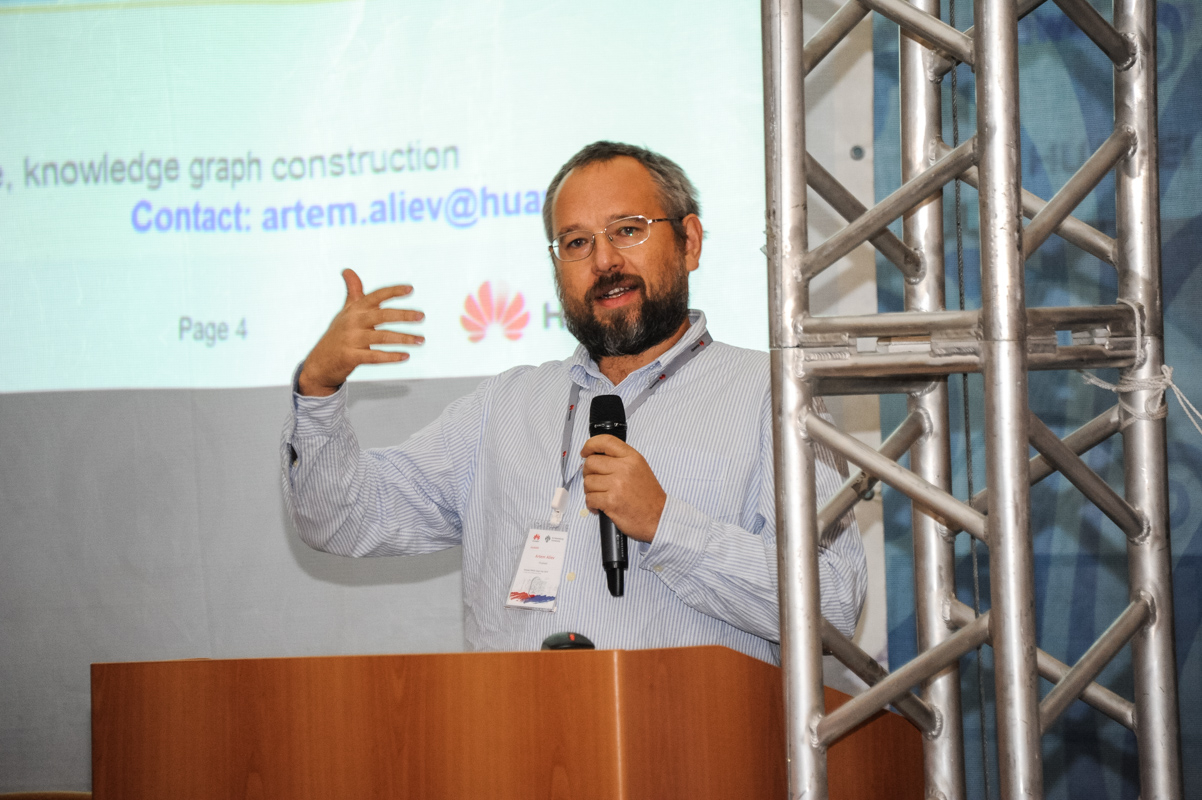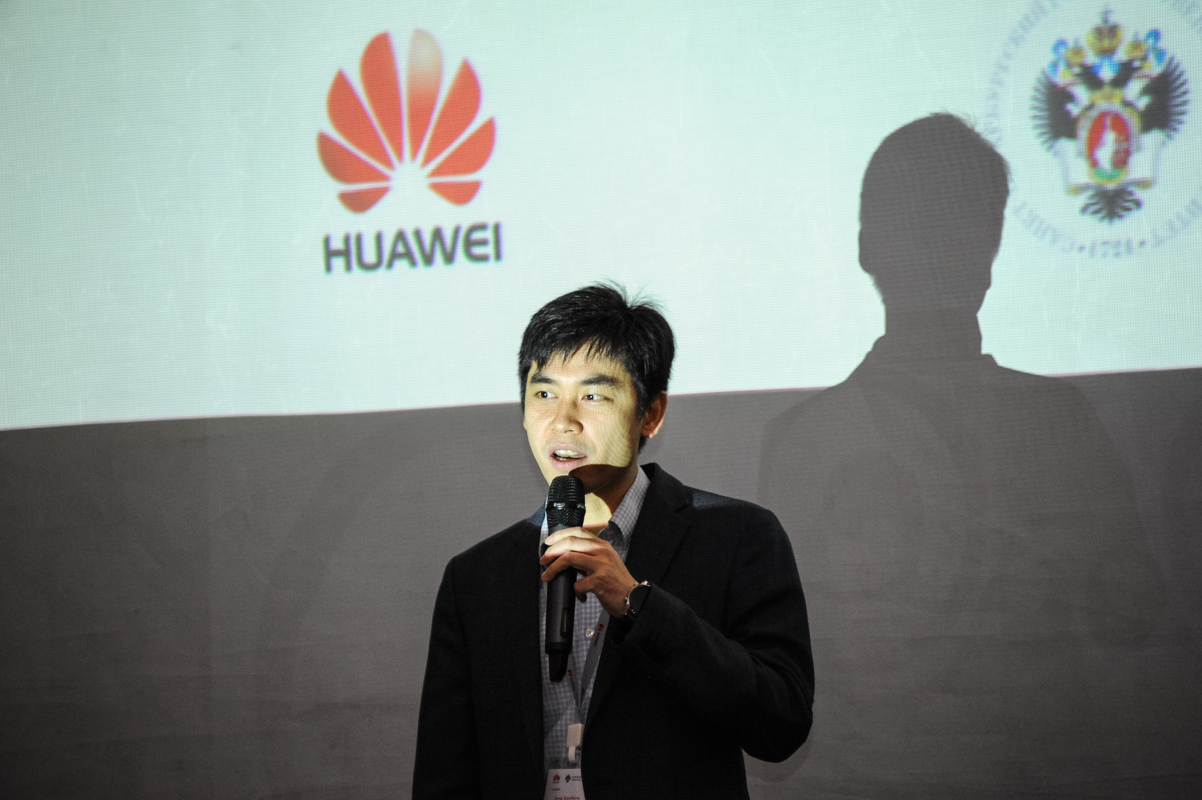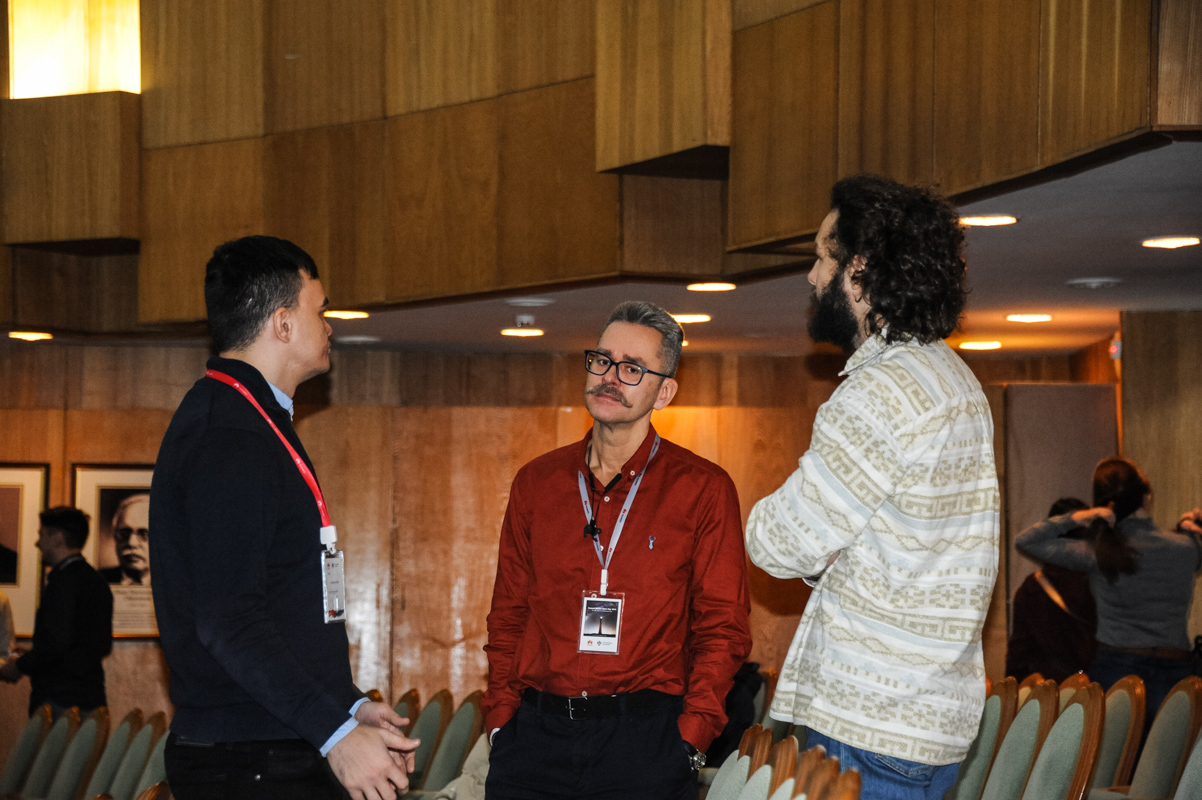Sharing best practices: experts from St Petersburg University and Huawei talk about their projects
Leading mathematicians and software developers from St Petersburg University have had a meeting with Huawei specialists
Leading mathematicians and software developers from St Petersburg University have had a meeting with Huawei specialists at a joint seminar at St Petersburg University. They were talking about their current research and getting to know their colleagues’ projects.
Aleksandr Sergeev is Director of the Business Incubator at St Petersburg University, and addressed the meeting participants with a welcoming speech. He noted that the seminar was designed to introduce Russian and Chinese experts to each other and establish communication between them. ‘We are going to build a bridge between serious science and innovative technologies. Huawei is one of the leading companies in the world. And St Petersburg University holds leading positions among the top world universities in areas that are of interest to Huawei, namely in mathematics, software and chemistry. I hope that the joint workshop will make it possible for participants to find new contexts for further interaction,’ he said. According to Aleksandr Sergeev, the seminar will serve as a solid step for developing the partnership.
In 2017, Huawei opened a Research and Development Centre in St Petersburg. Its director Jason Zeng said that during this time it has been possible to create a strong professional team of researchers and developers, as well as establish effective and mutually beneficial business relations with the academic community of the city. ‘This is the first time we are holding the Huawei open day at St Petersburg University. This is an excellent format for sharing best practices and ideas in areas of common interest to us – mathematics, software development, physics and chemistry,’ he said. ‘We are confident that we will be able to establish long-term and reliable cooperation with St Petersburg University and work together on new projects. It is worth noting that the contribution to the creation and development of conditions for research and development within the Russian high technology ecosystem is one of the key priorities for the Huawei research and development centre.’
During the seminar, Huawei experts shared their best practices and talked about the challenges that are currently being addressed by their main research activities. The St Petersburg University scientists presented research projects in the field of software and mathematics to their Chinese colleagues.
One of the lectures was devoted to a RuC-based programming system. RuC is an improved version of the C language, which is widespread in the field of embedded systems and mobile applications, but has a number of drawbacks that affect its reliability. ‘C is quite popular, but it is easy to make errors in it, which are then difficult to catch. However, we can protect a human being from many of them, the most common ones. So, our key point is security. RuC protects authors from their errors,’ commented Andrei Terekhov, Professor at St Petersburg University and Head of the Department of System Programming. ‘While it was being developed, we focused initially on schoolchildren who study robotics and programming. However, the military and other customers then became interested in this language: reliability is their key priority.’
Timofei Bryksin, Associate Professor at the Department of System Programming of St Petersburg University, spoke about the application of machine learning methods in software engineering. Software applications show high internal repeatability and predictability of their fragments. Consequently, they can be simulated by statistical methods of machine learning. Such models help solve specific practical problems. So, for example, one of the areas where they can be applied may be the improvement of feedback on online education platforms. ‘Students of mass market online courses on programming who have not properly completed their training assignment receive short feedback. They are informed that their software application does not work, and at best they are given a hint why – for example, due to memory or runtime limitations. However, this does not help students much, because they do not know what should be corrected. It is wrong to prompt in which line the error has been made, otherwise the student will not detect it. It is even worse to say how to correct this inaccuracy, then the student will not learn anything,’ explained Timofei Bryksin. ‘We have taken a large number of correct solutions, which were preceded by incorrect attempts. Then we have grouped them and tried to evaluate the errors that the students make. If you ask the teacher to write short generalised comments for each category, they can be used in the future to give feedback to new students.’ This technique has shown good results on the collected data and is being prepared for implementation on the Stepik platform.
Additionally, scientists and lecturers of the University presented their research in the field of mathematics. Viktor Zakharov is a Professor in the Department of Mathematical Modelling of Energy Systems of St Petersburg University. He made a presentation on new directions in improving heuristic algorithms that are not accurate from the point of view of classical mathematics. They often give not optimal but still quite successful solutions, and therefore are used by many. ‘We have found that a large layer of heuristic algorithms is characterised by dynamic instability, which has come to us from control theory: the solutions generated using algorithms are not optimal until the end of the process. However, there is the possibility of improving them. And we have managed to get a lot of results that make it possible for us to specifically indicate to what extent popular algorithms might be improved,’ said Viktor Zakharov. ‘All these are general methodological issues that may find application in practice such as: the problems of vehicle routing in extensive networks; managing distributed information databases; or in genetics. A certain type of heuristic algorithm works in each area. They solve the problems posed in them. Additionally, there is a chance to get new methods and new algorithms that make it possible to generate the best solutions.’
During the Huawei open day at St Petersburg University, the participants were able to exchange views and establish business contacts to create new joint research projects. ‘It seems to me that at this stage it is important to organise a collaboration between the University and large industrial partners such as Huawei. According to the reports of Huawei specialists, there are many cases where we can say a lot to them and share our expert knowledge. For example, as mathematicians, we know which problems can be solved, and which cannot. We can estimate how much this knowledge might cost,’ said Aleksandr Krylatov, Associate Professor at St Petersburg University. ‘It is necessary to find a balance between us, as scientists, and industry and the suppliers of the product to the market, in which everyone will be pleased.’




